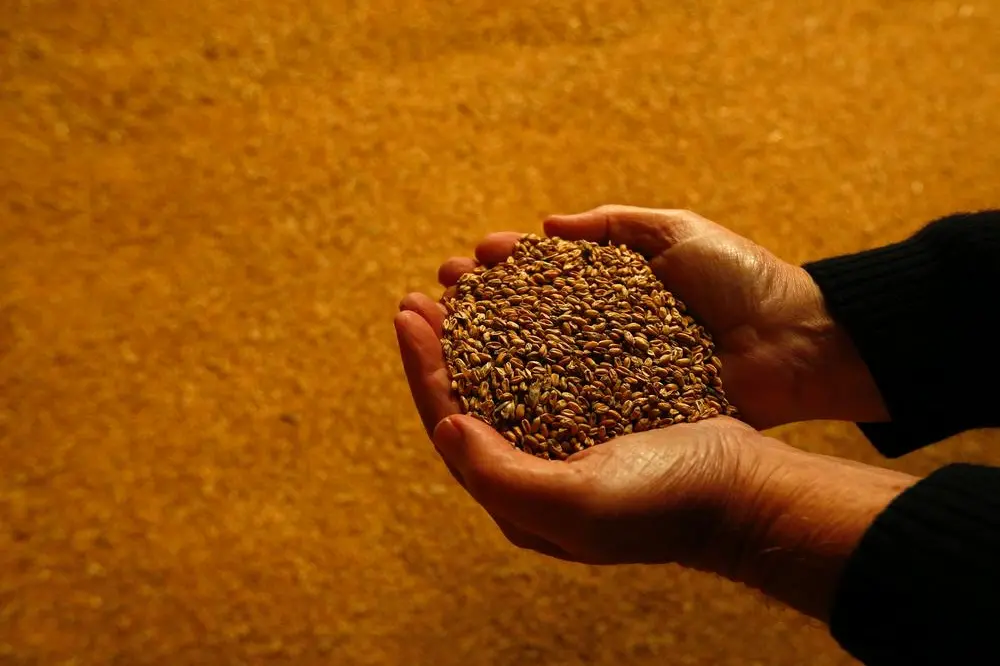PHOTO
(Adds supplies minister comment)
CAIRO, June 29 (Reuters) - Egypt's parliament has set up a fact-finding commission that will look into allegations of corruption in local wheat procurement.
Egypt, the world's largest wheat importer, this month announced a government-led inspection of wheat silos after an unusually high procurement figure prompted allegations of possible fraud from top industry officials, traders and members of parliament.
Parliament Speaker Ali Abdelaal said MPs would question the prime minister, supplies minister, trade minister and agriculture minister over allegations that private suppliers of wheat to the government have given it inflated figures to cash in on subsidies paid for the local harvest.
The Ministry of Supplies ended its annual wheat procurement round earlier this month saying it had bought nearly 5 million tonnes of Egyptian wheat, markedly higher than the 3 million to 3.5 million tonnes a year delivered over the past decade.
The Ministry of Supplies has dismissed allegations that its wheat procurement figures are inflated and has promised to impose penalties on local suppliers found to be misreporting the amount of wheat they have in their silos.
If the numbers were misrepresented, Egypt may have to buy more foreign wheat to meet domestic demand for state-subsidised bread, which could prove costly for a country suffering a severe foreign currency shortage.
Supplies Minister Khaled Hanafi told a parliamentary committee on Wednesday that he had closed private sector silos and stopped taking wheat from them ahead of the investigation.
"A neutral committee formed from the supplies police, the Supplies Ministry, and the Administrative Control Authority will perform an inventory of these silos," Hanafi told MPs.
He said he had asked the defence minister if the military's engineering authority could also join the committee.
"We will stop milling wheat from private sector silos and we will depend on public sector ones until the inventory is complete," Hanafi later told Reuters.
(Reporting by Mostafa Hashem; Writing by Ahmed Aboulenein; Editing by Lin Noueihed and Jane Merriman) ((ahmed.aboulenein@thomsonreuters.com; +20 2 2394 8097; Reuters Messaging: ahmed.aboulenein.thomsonreuters.com@reuters.net))
CAIRO, June 29 (Reuters) - Egypt's parliament has set up a fact-finding commission that will look into allegations of corruption in local wheat procurement.
Egypt, the world's largest wheat importer, this month announced a government-led inspection of wheat silos after an unusually high procurement figure prompted allegations of possible fraud from top industry officials, traders and members of parliament.
Parliament Speaker Ali Abdelaal said MPs would question the prime minister, supplies minister, trade minister and agriculture minister over allegations that private suppliers of wheat to the government have given it inflated figures to cash in on subsidies paid for the local harvest.
The Ministry of Supplies ended its annual wheat procurement round earlier this month saying it had bought nearly 5 million tonnes of Egyptian wheat, markedly higher than the 3 million to 3.5 million tonnes a year delivered over the past decade.
The Ministry of Supplies has dismissed allegations that its wheat procurement figures are inflated and has promised to impose penalties on local suppliers found to be misreporting the amount of wheat they have in their silos.
If the numbers were misrepresented, Egypt may have to buy more foreign wheat to meet domestic demand for state-subsidised bread, which could prove costly for a country suffering a severe foreign currency shortage.
Supplies Minister Khaled Hanafi told a parliamentary committee on Wednesday that he had closed private sector silos and stopped taking wheat from them ahead of the investigation.
"A neutral committee formed from the supplies police, the Supplies Ministry, and the Administrative Control Authority will perform an inventory of these silos," Hanafi told MPs.
He said he had asked the defence minister if the military's engineering authority could also join the committee.
"We will stop milling wheat from private sector silos and we will depend on public sector ones until the inventory is complete," Hanafi later told Reuters.
(Reporting by Mostafa Hashem; Writing by Ahmed Aboulenein; Editing by Lin Noueihed and Jane Merriman) ((ahmed.aboulenein@thomsonreuters.com; +20 2 2394 8097; Reuters Messaging: ahmed.aboulenein.thomsonreuters.com@reuters.net))





















